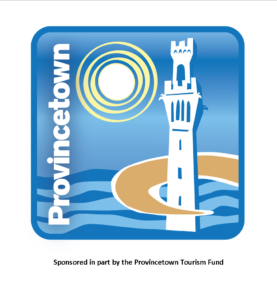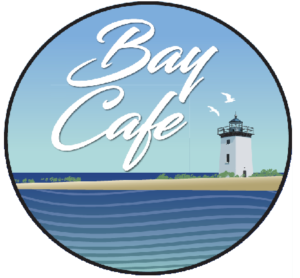
The 42-foot Fishing Boat Artemis Near Pilgrim Landing Park After Spring 2018 Storm
Provincetown History
 Provincetown became a port of call for seafarers and fishermen during the 1600s, and the carousing, drinking, gambling, and smuggling caused the Puritanical to nickname the area Helltown. As more and more settlers arrived, settlements became established along the Cape. Provincetown was itself incorporated as a town in 1727. Whaling became the principal business of the town, and after New Bedford and Nantucket, Provincetown was one of the great whaling ports of the country: by 1870, it was the wealthiest town in Massachusetts, a fact attested to by the many great late 19th century buildings that dot the landscape. As whaling activity expanded, captains took to replenishing their crews in the Cape Verdes and Azores, bringing to Provincetown Portuguese seamen who, by 1900, would come to dominate the Town. Descendants of Portuguese whalers still abound, operating businesses and fishing boats. Portuguese kale soup (try it!) is a staple in many of the town’s restaurants.
Provincetown became a port of call for seafarers and fishermen during the 1600s, and the carousing, drinking, gambling, and smuggling caused the Puritanical to nickname the area Helltown. As more and more settlers arrived, settlements became established along the Cape. Provincetown was itself incorporated as a town in 1727. Whaling became the principal business of the town, and after New Bedford and Nantucket, Provincetown was one of the great whaling ports of the country: by 1870, it was the wealthiest town in Massachusetts, a fact attested to by the many great late 19th century buildings that dot the landscape. As whaling activity expanded, captains took to replenishing their crews in the Cape Verdes and Azores, bringing to Provincetown Portuguese seamen who, by 1900, would come to dominate the Town. Descendants of Portuguese whalers still abound, operating businesses and fishing boats. Portuguese kale soup (try it!) is a staple in many of the town’s restaurants.
Provincetown has a rich and famous history in the arts. Artists began coming to the end of the Cape in the 1870s and they still come today. More than 100 years ago, Charles Hawthorn opened The Cape Cod School of Arts. Students’ easels on the beaches have attracted crowds of onlookers since the opening days of the 20th century. Today, the best viewing of new and classic American art is in the many galleries around town. When you’re out shopping or strolling down Commercial Street, take some time to experience the rich art and history in the galleries. Some of America’s premier artists and writers have made their summer homes in Provincetown. Eugene O’Neill wrote many of his early works here; they were performed at a small theater on the wharf. Jackson Pollack, Tennessee Williams, and Jack Kerouac spent summers writing here. Henry David Thoreau and Edna St. Vincent Millay spent time here as well.
 Today, Provincetown is known primarily as a resort, popular with all sorts of people, but appealing especially to gay men, lesbians, and nonbinary and trans folks. There is much to see and do. From McMillan’s Wharf or the deck at Crowne Pointe, you can see across the bay to the mainland and the curve of Cape Cod to the south. Climb the Pilgrim Monument tower and you’ll be treated to a stunning view of the entire peninsula! To the north, you’ll see the Cape Cod National Seashore, with its magnificent dunes, beaches, and salt forest, just a short drive or bike ride from town. Hiking, biking, bird watching, and ocean swimming (if it’s still warm enough!) are all available during TransWeek, with easy access through the National Seashore. Put on your hiking shoes or rent a bike and follow the trails through the dunes, or take a motorized dunes tour—or perhaps you’d rather go whale watching. There are lots of shops all along Commercial Street and the end-of-season shopping is fantastic. Enjoy the many galleries. Take in a play or enjoy a piano bar. Pamper yourself at one of the many spas.
Today, Provincetown is known primarily as a resort, popular with all sorts of people, but appealing especially to gay men, lesbians, and nonbinary and trans folks. There is much to see and do. From McMillan’s Wharf or the deck at Crowne Pointe, you can see across the bay to the mainland and the curve of Cape Cod to the south. Climb the Pilgrim Monument tower and you’ll be treated to a stunning view of the entire peninsula! To the north, you’ll see the Cape Cod National Seashore, with its magnificent dunes, beaches, and salt forest, just a short drive or bike ride from town. Hiking, biking, bird watching, and ocean swimming (if it’s still warm enough!) are all available during TransWeek, with easy access through the National Seashore. Put on your hiking shoes or rent a bike and follow the trails through the dunes, or take a motorized dunes tour—or perhaps you’d rather go whale watching. There are lots of shops all along Commercial Street and the end-of-season shopping is fantastic. Enjoy the many galleries. Take in a play or enjoy a piano bar. Pamper yourself at one of the many spas.
There’s a lot to love in Provincetown.
 First, there’s the location. Situated on the very tip of Cape Cod, Provincetown offers spectacular scenery: white sandy beaches, tall dunes, cranberry bogs, scrub forests, lighthouses, the 252-foot-tall Pilgrim Monument, historical locations, parks, and of course the sea, feet away from Commercial Street. All these views come with no end of things to do– bicycling, hiking forest trails, visits to wineries, touring the dunes, whale watching cruises, and, in warm weather, swimming.
First, there’s the location. Situated on the very tip of Cape Cod, Provincetown offers spectacular scenery: white sandy beaches, tall dunes, cranberry bogs, scrub forests, lighthouses, the 252-foot-tall Pilgrim Monument, historical locations, parks, and of course the sea, feet away from Commercial Street. All these views come with no end of things to do– bicycling, hiking forest trails, visits to wineries, touring the dunes, whale watching cruises, and, in warm weather, swimming.
 Then there’s the town, with steeped-roofed houses and no end of painted ladies bristling with porches and gables. The Pilgrim Monument dominates the landscape; it’s visible from practically everywhere in town. There are hundreds of shops and bars and eateries, dozens of art galleries and fine restaurants, and many small inns and bed and breakfasts. Quirkiness abounds. Alleyways lead to cubbyhole boutiques, side streets reveal picturesque houses and inns. You can take in a movie, visit a museum, walk along the beach, see a live performance, visit a fudge store or creamery, go clubbing, explore local landmarks, or find bargain-priced clothing and military surplus at the marine salvage store. You take it all in on Commercial Street, which has limited traffic and hundreds of pedestrians (thousands in the summer! It’s unbelievable).
Then there’s the town, with steeped-roofed houses and no end of painted ladies bristling with porches and gables. The Pilgrim Monument dominates the landscape; it’s visible from practically everywhere in town. There are hundreds of shops and bars and eateries, dozens of art galleries and fine restaurants, and many small inns and bed and breakfasts. Quirkiness abounds. Alleyways lead to cubbyhole boutiques, side streets reveal picturesque houses and inns. You can take in a movie, visit a museum, walk along the beach, see a live performance, visit a fudge store or creamery, go clubbing, explore local landmarks, or find bargain-priced clothing and military surplus at the marine salvage store. You take it all in on Commercial Street, which has limited traffic and hundreds of pedestrians (thousands in the summer! It’s unbelievable).
Admiral’s Landing, which is one of the inns we recommend, has a great web page about Commercial Street.
Fantastically crowded and frantic during the the summer months, Provincetown is cozier and more sedate in October, the month of TransWeek. Some establishments are already closed for the winter, but most remain open, and most of the stores have end-of-season sales. You can pick up art, mementos, jewelry, and clothing at bargain prices.

Photo by Colette Fu
And then there are in the people. During TransWeek you’ll see a mix of gay and lesbian couples, locals of Portuguese descent, Fair-goers, and, on weekends, gray-haired tourists who arrive on buses. Everyone is friendly, everyone is tolerant of others, and the Provincetown Police are there to make sure of it. It’s easy to strike up conversations and there’s plenty of time to talk, and plenty of places in which to do it.
And finally, there’s the creativity and quirkiness that defines Provincetown. It’s difficult to describe, but you’ll see it when you get to town. Dare I say, you’ll see a lot of unique and idiosyncratic presentations of gender. Playing with gender has long been a facet of gay and lesbian culture.
It all makes for a wonderful setting in which to have a transgender event. TransWeek is happy to call Provincetown home.


































